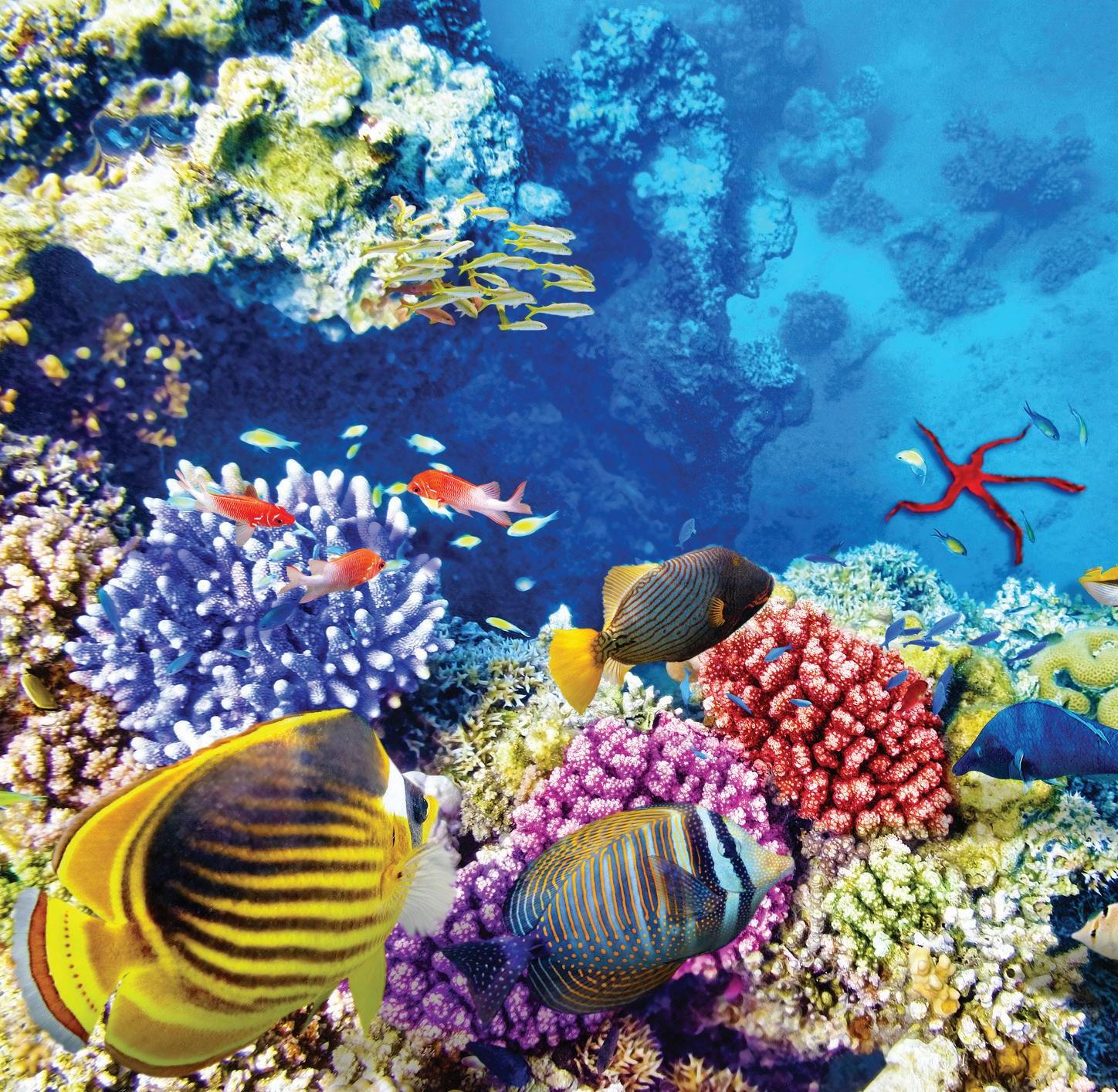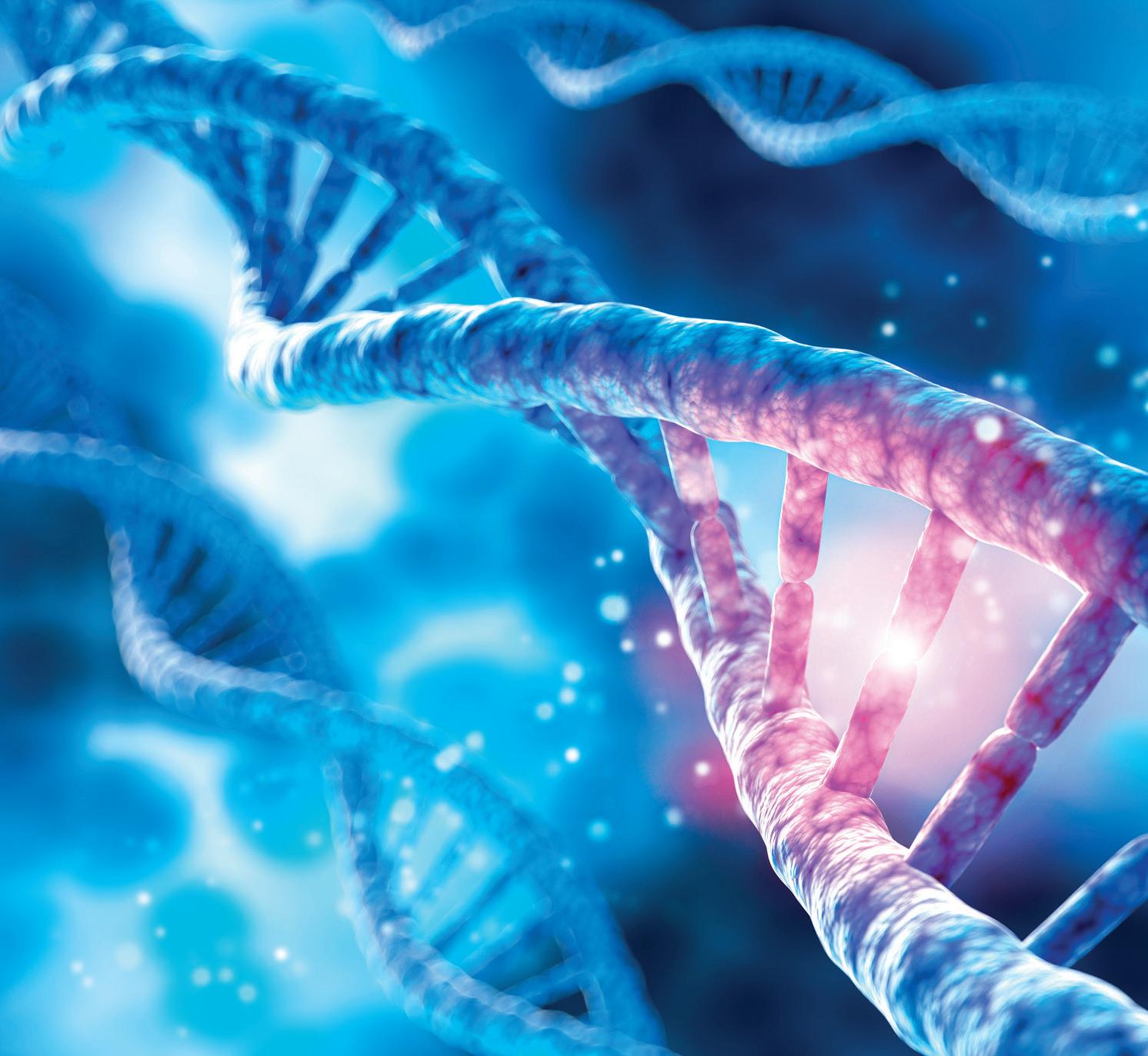
6 minute read
Science
AP COURSES AP Biology
AP Biology is an accelerated course designed to integrate and enhance the skills and knowledge acquired in Biology I. Emphasis is placed on evolution, genetics, and the physiological and biochemical interactions of organisms within the environment. Students will develop an understanding of key science practices as well as advanced reasoning and inquiry skills through course work and laboratory investigations. Prerequisite: Biology, Chemistry, Algebra II Grade Level: 11th, 12th Offered: 1B-3C-5D Length: 3 Bins
Advertisement
AP Chemistry
AP Chemistry is designed to be equivalent to a first-year chemistry course at the college level where students build a foundation of chemical knowledge through both traditional and inquiry-based investigations that allow them to collect and analyze data and connect concepts across the Big Ideas. Students will: use models to describe scientific phenomena and solve problems; use appropriate mathematics; engage in scientific questioning to extend thinking and guide chemical investigations; plan and implement data collection strategies based on scientific questions; hone their abilities to create a scientific claim, based on evidence and scientific reasoning; and connect knowledge across the various content areas both within, and outside, the course. In this Algebra-based course, students will use theoretical and physical models, simulations, and mathematical relationships to process information and expand their understanding of chemistry. Prerequisite: Biology, Chemistry, Algebra II, and concurrent enrollment in Advanced Pre-Calculus or higher Grade Level: 11th, 12th Offered: 1A-3B-5C Length: 3 Bins
AP Physics I
The AP Physics I course is an algebra-based, introductory college-level physics course. Students will cultivate their understanding of physics through classroom study, inclass activity, and hands-on, inquiry-based investigations as they explore concepts of systems, fields, force interactions, change, conservation, and waves. The mathematical basis of this course is Algebra and Trigonometry (functions and equations). Mathematical relationships will be used as guides for thinking and in all aspects of scientific inquiry. Students will use a variety of techniques, including real and virtual laboratory investigations, inquiry, and scientific problem-solving, to make informed decisions and think critically and logically about physics concepts. Emphasis will be on designing and conducting scientific investigations to gather, interpret, and analyze data, and to form relationships between evidence and explanations. Prerequisite: Advanced Chemistry and concurrent enrollment in Advanced Pre-Calculus or higher Grade Level: 11th, 12th Offered: 1C-3D-4A Length: 3 Bins
AP Environmental Science
The goal of the AP Environmental Science course is to provide students with the scientific principles, concepts, and methodologies required to understand the interrelationships of the natural world, to identify and analyze environmental problems both natural and human-made, to evaluate the relative risks associated with these problems, and to examine alternative solutions for resolving and/ or preventing them. Specific topics include ecosystems, biodiversity, populations, Earth systems and resources, land and water use, energy, air pollution, aquatic and terrestrial pollution, and global change. Prerequisite: Chemistry, Algebra II Grade Level: 11th, 12th Offered: 1C-3D-4A Length: 3 Bins
ELECTIVE COURSES Environmental Science
This course provides an introduction to the study of the environment. The first bin focuses on ecology: Earth’s components, how living and non-living things interact, and the impact of human societies on the natural environment. The second bin revolves around human population growth and agriculture, and how humans use the natural environment. Students must take a third bin, Current Events in Environmental Science or Marine Biology, to receive full credit for Environmental Science as a fourth-year science elective. Prerequisite: Chemistry Bin 1: Ecology Bin 2: How Humans Use the Environment Bin 3: Current Events in Environmental Science or Marine Biology Grade Level: 11th, 12th Offered: 2D-5A Length: 2 Bins
Current Events in Environmental Science
This course utilizes current scientific reporting in newspapers, journals, blogs, and websites to review, analyze, and critique current events in environmental science. Topics may include water resources, water pollution, air pollution, global climate change, hazardous substances, epidemiology, human health effects from environmental exposures, solid waste disposal, recycling, and/or energy issues. This course is one of two options following two bins of Environmental Science, one of which is required to complete credit for Environmental Science. Prerequisite: Environmental Science Grade Level: 11th, 12th Offered: 6B Length: 1 Bin
Marine Biology: How Life Finds a Way!
Have you ever wanted to study marine biology? They say that we know more about the moon than we do about the oceans. In this course, we will learn about sharks, humpback whales, the Hawaiian Islands, predator and prey relationships, plate tectonics, hurricanes, and more. We’ll study animals found in the deep ocean and on coral reefs while learning how sunlight and ocean temperature affect their habitats. By using the novel, MEG, by Steve Altman, we will study the mystery of a body of water that covers 70% of our earth. Prerequisite: Environmental Science Grade Level: 11th, 12th Offered: 6B Length: 1 Bin
Engineering Your World 1: Engineering Design and Analysis
This course will introduce students to the Engineering Design Process utilizing the Engineer Your World curriculum developed by The Cockrell School of Engineering at The University of Texas at Austin. The students will focus on developing authentic engineering practices through constructing and analyzing data in a project-based learning environment. Past projects have included designing a camera, reverse engineering a product, creating a coffee maker, constructing an earthquake proof tower, programming digital music, and producing a mechanism to conduct aerial imaging. Students who want to earn dual credit for this course must register and enroll independently with UT. Prerequisite: Algebra II and Chemistry Grade Level: 10th - 12th Offered: 1D-3A-5B Length: 3 Bins


Science


The Physics of Harry Potter
The Physics of Harry Potter course evaluates the scientific validity of various aspects of the world of Harry Potter, including the Sorcerer’s Stone (as related to alchemy), Hermione’s Time Turner (time travel), prophecy (entropy and chaos), Winguardium Leviosa (levitation and flying), herbology and potions (plant chemistry and pharmacology), the Pensieve (memory transfer and teleportation), Lumos (behavior of light), and the invisibility cloak (camouflage and refraction), among other proposed magical ideas. A variety of methods, tools, and technology will be used to develop students’ understanding of scientific ideas to arm them to answer the question, “Is this scientifically possible?” Students will utilize a variety of techniques, including whole class discussion, research-based arguments, written reflections, small group problem solving, and experimental design to make informed decisions and think critically and logically about science in the real world. Emphasis will be on examining scientific evidence to form fact-based explanations for seemingly “magical” occurrences. Prerequisite: Chemistry Grade Level: 11th, 12th Offered: 2D Length: 1 Bin
Genetic Disorders
There are endless possibilities for the pattern of one’s genetic material, but how do genetic disorders appear when the chances of them are quite rare? In this course, students will unravel the genome and discover how mutations in DNA sequence can greatly affect an individual. Students will use knowledge of DNA, protein synthesis, cellular processes, and inheritance patterns to study the cause of various genetic disorders and the physical effects they have on an individual. Prerequisite: Chemistry Grade Level: 11th, 12th Offered: 4A Length: 1 Bin
Forensic Science
Forensic Science is the application of science (chemistry, physics, and biology) to the criminal and civil laws that are enforced by police agencies in a criminal justice system. It includes the investigation of fingerprinting, fiber analysis, ballistics, arson, trace evidence analysis, poisons, drugs, blood spatters, and blood samples. Students are taught the proper collection, preservation, and laboratory analysis of various samples. Prerequisite: Chemistry Grade Level: 11th, 12th Offered: 4B Length: 1 Bin
Epidemiology
Have you ever wondered how diseases can suddenly appear and quickly affect populations? Epidemiology is the study of diseases in populations of humans or other animals, specifically how, when, and where they occur. Students enrolled in this course will study and research infectious diseases to determine what factors are associated with diseases and what factors may protect people or animals against diseases. Prerequisite: Chemistry Grade Level: 11th, 12th Offered: 3D Length: 1 Bin










